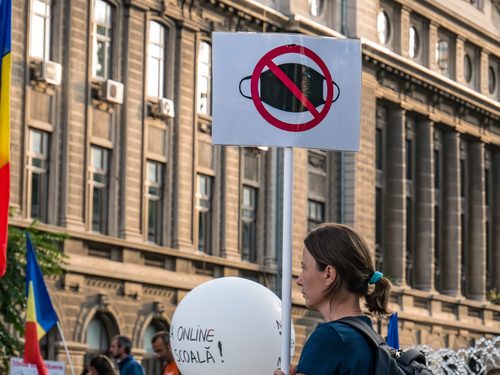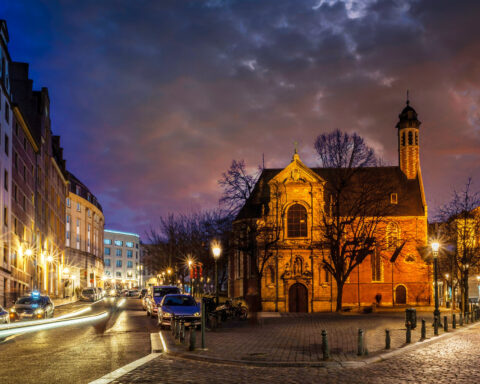BRUSSELS (Parliament Politics Magazine): On Sunday, Belgian police used water cannons and tear gas to disperse activists in Brussels who had gathered to oppose the COVID-19 regulations and viral vaccinations the government announced.
Thousands of demonstrators, including some from neighbouring European nations, gathered to express their dissatisfaction with the country’s health pass and other restrictions related to the pandemic. The slogans on the banners were critical of Prime Minister Alexander De Croo and the government’s policies.
The demonstrators who are believed to be around 50,000 marched around the capital before assembling at Cinquantenaire Park in the city’s European section to show their opposition against the government’s virus policies.
After the protesters rejected directions given over loudspeakers that the rally was done and that they should leave, riot police were called in to disperse the crowd.
Thick clouds of smoke and serpentine lines of tear gas filled the air as water cannon trucks fired strong jets at the marchers. An entrance window at an EU facility was damaged, according to RTL radio.
On Sunday, Belgian police used water cannons and tear gas to disperse activists in Brussels who had gathered to oppose the government’s COVID-19 measures and viral vaccinations.
Protests against Belgium’s health pass have been going on for several weeks, some of which have been tainted by violence. This allows you to enter restaurants and cultural events with proof of vaccination or a current COVID test.
De Croo stated earlier this month that the Belgian health permit, known as a “Covid Safe Ticket,” should be kept as a “temporary, exceptional measure.”
The requirements for acquiring the pass will be tightened, however they will remain less stringent than in France for the time being. The Belgian parliament, on the other hand, is expected to debate whether the health pass should be changed to a “vaccination pass,” as has been done in the western neighbour of the country.
The organisers of the rally on Sunday, which comprised the movements World Wide Demonstration for Freedom et Europeans United for Freedom, had encouraged demonstrators from other nations to attend. In the cortege, flags of the Netherlands, Poland, and Romania could be seen.
Despite the prevalence of the Omicron COVID-19 strain, the rally came as several nations moved towards loosening health restrictions. According to the European Centre for Disease Prevention and Control (ECDC), the Omicron is now dominating in the European Union and the European Economic Area.
Last week, everyday cases in Belgium surpassed 60,000, prompting authorities to refer to the situation as a “tsunami.” However, because Omicron’s effects are less severe than those of the Delta variant, the health system has been able to avoid the pressures experienced in past waves.
Hospitalizations increased by 39% in the week to January 20 in comparison to the preceding seven days, according to data from Sciensano, Belgium’s public health research institute. However, the number of occupied intensive care beds declined by 10%. A booster vaccine dosage has been given to almost two-thirds of the adult population.
In this light, on Friday, the Prime Minister declared that restaurants and bars could remain open for extended hours, however, nightclubs must remain closed.






